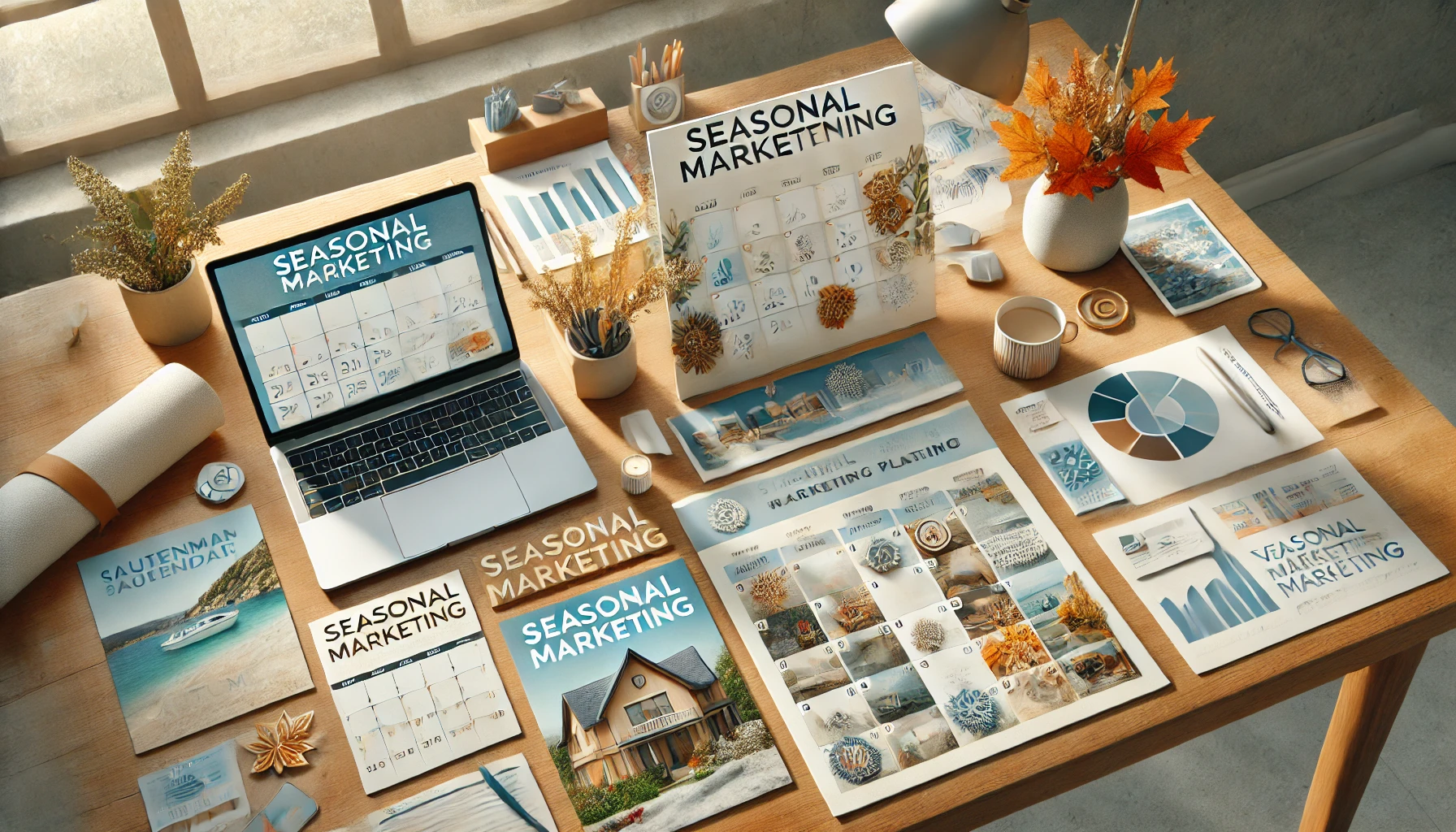
Dynamic Pricing: Maximizing Your Rental Income
Dynamic pricing is a game-changer for vacation rental property owners. It helps you optimize rental rates based on various factors like demand, season, and market trends. By implementing dynamic pricing strategies, you can maximize your rental income and ensure your property is always competitively priced.
Understanding Dynamic Pricing
Dynamic pricing involves adjusting your rental rates in real-time based on market conditions. Just like airline tickets and hotel rooms, vacation rental prices can fluctuate depending on demand. During peak seasons or special events, you can increase your rates to maximize profits. Conversely, during off-peak times, lowering your rates can attract more guests and keep your property occupied.
To start with dynamic pricing, monitor local events, holidays, and seasons that affect demand. For example, if your property is near a ski resort, rates should increase during winter. If you’re close to a beach, summer rates will be higher. By staying informed about local trends, you can adjust your pricing to match demand and optimize occupancy.
Tools and Software: Your Pricing Allies
Using dynamic pricing tools and software can simplify the process and ensure you get the most accurate rates. Tools like Beyond Pricing, Wheelhouse, and PriceLabs analyze market data and automatically adjust your rates based on demand and competition. These tools take the guesswork out of pricing and help you stay competitive in a fluctuating market.
Most dynamic pricing tools integrate seamlessly with popular vacation rental platforms like Airbnb and VRBO. They continuously monitor market trends and adjust your rates accordingly. This automation not only saves you time but also ensures that your property is always priced optimally. By leveraging these tools, you can maximize your rental income without constantly monitoring the market yourself.
Setting Your Base Rate: The Starting Point
Your base rate is the starting point for dynamic pricing. It’s essential to set a competitive base rate that covers your costs and provides a profit margin. Research similar properties in your area to understand their pricing and set a baseline that reflects your property’s value.
Consider factors like location, amenities, and property size when determining your base rate. If your property offers unique features or exceptional views, you can justify a higher base rate. Once you’ve set a competitive base rate, dynamic pricing tools can adjust it based on demand, ensuring you capture maximum revenue during high-demand periods and maintain occupancy during slower times.
Monitoring and Adjusting: Stay Flexible
While dynamic pricing tools handle most adjustments, it’s crucial to monitor performance and make manual adjustments if necessary. Pay attention to booking patterns and guest feedback. If you notice your property isn’t booking as expected, consider lowering the price or offering special promotions to attract guests.
Conversely, if you’re consistently booked at full price, it might be time to increase your rates. Stay flexible and be willing to experiment with different pricing strategies. By regularly reviewing your pricing and making necessary adjustments, you can ensure your property remains competitive and profitable.
Special Events and Holidays: Capitalize on Demand
Special events and holidays present excellent opportunities to maximize your rental income. Events like music festivals, sports tournaments, and local celebrations can drive significant demand for accommodations. During these times, increase your rates to capitalize on the influx of visitors.
Be sure to mark these events on your calendar and adjust your pricing well in advance. Promote your property’s availability during these periods to attract early bookings. By leveraging special events and holidays, you can significantly boost your rental income and ensure your property is always in high demand.
Seasonal Pricing: Align with Guest Expectations
Seasonal pricing is another critical aspect of dynamic pricing. Different seasons bring varying levels of demand, and your pricing should reflect these changes. During peak tourist seasons, such as summer or winter holidays, higher rates are justified. In contrast, lower rates during shoulder seasons can attract budget-conscious travelers.
Consider offering discounts for longer stays during off-peak seasons to maintain occupancy. Package deals and special offers can also attract guests during slower times. By aligning your pricing with seasonal demand, you can maximize occupancy and revenue throughout the year.
Communicating with Guests: Transparency is Key
Transparency with your guests about pricing changes is essential. Clearly explain any price fluctuations and provide reasons for the adjustments, such as local events or seasonal demand. This transparency builds trust with your guests and helps them understand the value they’re receiving.
Additionally, ensure your pricing is consistently updated across all platforms. Misaligned rates can confuse potential guests and lead to booking issues. By maintaining clear and consistent communication about your pricing strategy, you can enhance the guest experience and avoid misunderstandings.
Benefits of Dynamic Pricing: A Win-Win Strategy
Implementing dynamic pricing offers numerous benefits for both property owners and guests. For owners, it maximizes rental income and ensures competitive pricing in the market. For guests, it provides fair pricing based on current demand, often leading to better deals during off-peak times.
Dynamic pricing also allows you to adapt to market changes quickly. Whether it’s a sudden increase in demand due to an event or a drop in bookings during the off-season, dynamic pricing helps you stay ahead. This flexibility ensures your property remains attractive to guests and profitable for you.
Guest Communication: The Key to a Great Vacation Rental Experience

Effective guest communication is the backbone of a successful vacation rental business. It ensures that guests feel welcomed, informed, and supported throughout their stay. Let’s dive into some essential tips and strategies to enhance your guest communication, creating a seamless and enjoyable experience for everyone.
Prompt Responses: Show You Care
Responding to guest inquiries promptly is crucial. When a potential guest sends a question, they appreciate a quick and friendly reply. It shows that you care about their needs and are attentive to their concerns. Aim to respond within an hour if possible, especially during peak booking times.
Use automated messages to acknowledge inquiries immediately, letting guests know you’ll get back to them shortly. This immediate response reassures them that their message has been received and that you’re on top of things. Even a short, polite message can make a big difference in how guests perceive your service.
Clear and Concise Information: Avoid Confusion
Providing clear and concise information is essential for preventing misunderstandings. Make sure your property listing includes all the necessary details, such as check-in and check-out times, house rules, and amenity descriptions. This helps set expectations and reduces the number of questions guests need to ask.
Before arrival, send a detailed welcome message with check-in instructions, Wi-Fi passwords, and any other relevant information. Consider creating a digital guidebook with local recommendations and tips for getting the most out of their stay. The more information you provide upfront, the smoother their experience will be.
Personal Touches: Make Them Feel Special
Adding personal touches to your communication can make guests feel valued and appreciated. Address guests by their names and personalize messages based on their booking details. If you know they’re celebrating a special occasion, mention it and offer a small gesture like a complimentary bottle of wine or a special note.
Checking in with guests after their first night to see if everything is going well shows that you’re attentive and care about their experience. These small personal touches can leave a lasting impression and encourage positive reviews and repeat bookings.
Handling Issues Gracefully: Be the Solution
Even with the best planning, things can go wrong. How you handle issues can make or break the guest experience. When a problem arises, respond promptly and take responsibility. Apologize for the inconvenience and offer a solution as quickly as possible.
For example, if a guest reports that an appliance is malfunctioning, arrange for a repair immediately and offer a temporary solution if possible. Keeping a calm and positive attitude, even in challenging situations, can turn a negative experience into a positive one. Guests appreciate when you go above and beyond to resolve issues.
Post-Stay Communication: Leave a Lasting Impression
Don’t forget about your guests once they’ve checked out. Post-stay communication is an excellent opportunity to leave a lasting impression. Send a thank-you message expressing your gratitude for their stay and inviting them to return in the future. Encourage them to leave a review and provide feedback on their experience.
A follow-up email with a discount code for their next stay can incentivize repeat bookings. This gesture shows that you value their patronage and are committed to providing excellent service. Building long-term relationships with guests can lead to loyal customers and more bookings.
Using Technology: Enhance Communication Efficiency
Leveraging technology can streamline your guest communication and make it more efficient. Use property management software to automate messages and keep track of guest interactions. Automated systems can handle routine messages like booking confirmations and check-in instructions, freeing up your time for more personalized communication.
Consider using messaging apps like WhatsApp or SMS for real-time communication. These platforms are convenient for guests and allow for quick and easy interactions. By embracing technology, you can enhance your communication efficiency and ensure guests receive timely and accurate information.
Building Trust: Be Transparent and Honest
Transparency and honesty are key to building trust with your guests. Be upfront about any potential issues or limitations of your property. If there’s ongoing construction nearby or a temporary amenity outage, inform guests in advance. They’ll appreciate your honesty and be more understanding if they know what to expect.
In your listing, use accurate and up-to-date photos and descriptions. Avoid exaggerating features or amenities, as this can lead to disappointment and negative reviews. By being transparent and honest, you build a reputation for reliability and integrity, which can attract more guests in the long run.
Effective Marketing Strategies for Your Vacation Rental
Creating a successful vacation rental involves more than just a great property. Effective marketing strategies can help you reach more potential guests and keep your property booked throughout the year. Let’s explore some engaging and fun marketing strategies to boost your vacation rental’s visibility and appeal.
Leverage Online Travel Agencies (OTAs)

Online travel agencies (OTAs) like Airbnb, Vrbo, and Booking.com are essential platforms for listing your vacation rental. They have a vast audience and can significantly increase your property’s visibility. Ensure your listing is complete with high-quality photos, detailed descriptions, and accurate availability. Respond to inquiries promptly and maintain excellent communication to improve your ranking on these platforms.
You can also take advantage of promotional tools offered by OTAs, such as discounts for early bookings or last-minute deals. These promotions can attract more guests and help fill your calendar. Always keep your calendar up-to-date to avoid double bookings and ensure a smooth booking process for guests.
Utilize Social Media
Social media is a powerful tool for marketing your vacation rental. Platforms like Facebook, Instagram, and Twitter allow you to reach a broad audience and engage with potential guests directly. Create engaging content by posting beautiful photos of your property, local attractions, and guest experiences. Use hashtags and location tags to increase the visibility of your posts.
Consider running targeted ads on social media to reach specific demographics. For example, you can target ads to families during school holidays or to couples for romantic getaways. Engaging with followers by responding to comments and messages promptly can build a loyal community and encourage repeat bookings.
Invest in Professional Photography
A picture is worth a thousand words, and this is especially true for vacation rentals. High-quality photos can make your property stand out and attract more bookings. Consider hiring a professional photographer who specializes in real estate or vacation rentals. They can capture your property in the best light, highlighting its unique features and amenities.
Ensure your photos include all key areas of the property, such as the living room, kitchen, bedrooms, and outdoor spaces. Include shots of any special features, like a pool, hot tub, or stunning views. Professional photos not only make your listing more attractive but also help set realistic expectations for guests, leading to better reviews.
Optimize Your Listing with SEO
Search engine optimization (SEO) is crucial for increasing your vacation rental’s visibility online. Use relevant keywords in your listing title and description to help potential guests find your property. Think about what terms people might use when searching for a vacation rental in your area, such as “beachfront vacation home” or “cozy mountain cabin.”
Additionally, write a compelling and informative description that highlights the unique aspects of your property. Mention nearby attractions, amenities, and any special offers you provide. The more detailed and appealing your description, the higher the chance of converting views into bookings.
Collect and Showcase Reviews
Positive reviews can significantly impact your booking rates. Encourage guests to leave reviews by making the process easy and reminding them at the end of their stay. Thank guests for their feedback and address any concerns promptly to show that you value their opinions.
Display these reviews prominently on your listing and social media pages. Potential guests are more likely to book if they see positive experiences from previous guests. Consider sharing review highlights or testimonials in your marketing materials to build trust and credibility.
Offer Special Deals and Packages
Special deals and packages can attract more guests and encourage longer stays. Consider offering discounts for extended stays, last-minute bookings, or early bird reservations. Create packages that include local experiences, such as guided tours, dining vouchers, or tickets to nearby attractions.
These offers can make your property more appealing and provide added value to guests. Highlight these deals in your listings, social media posts, and email newsletters to reach a wider audience. Special deals not only boost bookings but also enhance the overall guest experience.
Partner with Local Businesses
Partnering with local businesses can be a win-win situation for both parties. Collaborate with local tour operators, restaurants, and shops to offer exclusive discounts or packages to your guests. These partnerships can enhance your guests’ stay and provide them with memorable experiences.
For example, you can offer a discount at a popular local restaurant or a guided tour of nearby attractions. In return, local businesses can recommend your property to their customers, increasing your visibility and potential bookings. Building strong relationships with local businesses can also foster a sense of community and support the local economy.
Keep Your Listing Updated
Regularly updating your listing is essential for maintaining high visibility and attracting bookings. Refresh your photos, update the description, and ensure all information is accurate and current. Highlight any new amenities or upgrades you’ve added to the property.
Keeping your listing fresh and engaging shows potential guests that you are actively managing your property. It also helps your listing stand out among competitors. Regular updates can improve your ranking on OTAs and search engines, leading to more bookings and better visibility.



